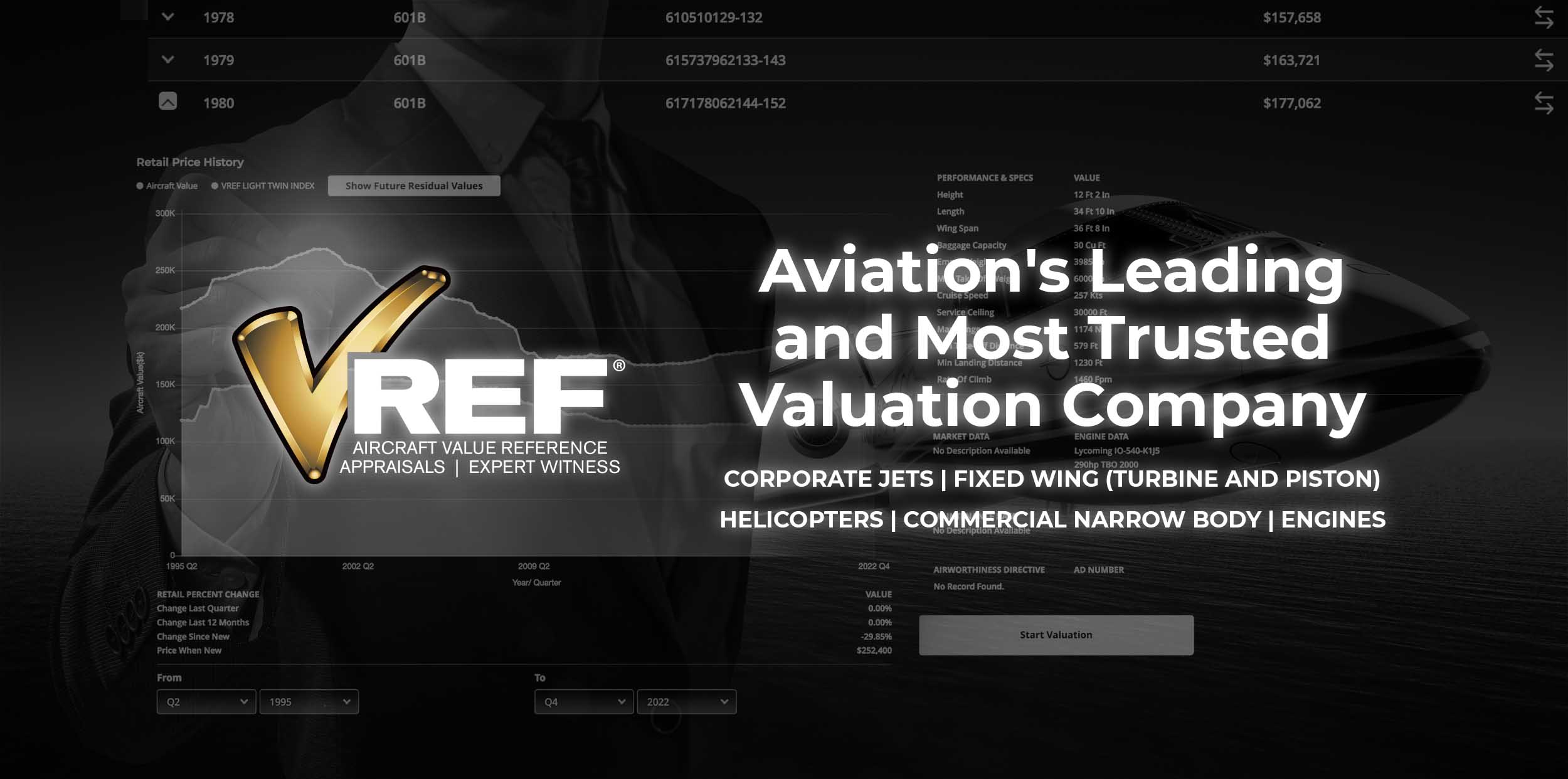Do you know how long maintenance records for an aircraft need to be kept?
What about ensuring they’re safely stored? And if you ever lose or destroy a record, can it be replaced with a copy?
When it comes to keeping records organized and on hand, you cannot think of it in the same way you would think of a car. Losing or tossing the last receipt you have for completed auto work like an oil change, tire rotation, etc., is a habit many car owners have. As long as you’re driving with your driver’s license and insurance, it’s usually not a big deal if you don’t have all the maintenance records on you.
The same cannot be said for aviation.
In addition to standards set by the FAA, keeping these records is vital to the value of your aircraft. Losing them takes a sizable amount of its value right off the top, no matter what condition your plane is in – up to 60% in some cases.
Need an aviation appraisal? VREF is a trusted source of the AOPA.
What To Know About Keeping Maintenance Records For An Aircraft
Here’s everything you need to know about maintaining records for your aircraft.
Is A Logbook & Maintenance Record The Same Thing?
The answer to this question is yes and no. The reason there is no simplified answer is that there are many different types of logbooks, including:
- Engine log
- Airframe log
- Prop log
- Journey or flight log
- Pilot journey or flight log
For piston aircraft, when someone is asking about its logbooks, they are usually referring to the big 3: engine, airframe, and prop logs. For turbine aircraft, there are airframe, prop if applicable, engine, and APU if applicable logbooks. These log books are considered the aircraft pedigree, which is critical to the overall value of the aircraft. Logbooks help tell the ownership story, where the aircraft has been based, the inspections performed, who completed them, and when. They also can give you insight into potential issues, like corrosion, as an aircraft that has lived by the ocean its entire life is more susceptible than one that lived in the high desert. Logbooks are considered the bible for the plane; without them, you will never know if all ADs or SBs were complied with or if there were other failures or previous damage history.
In the case of piston aircraft, its logbooks may also contain non-maintenance records like work orders, warranties, and invoices. You may not ever need these documents, but it’s better to keep them than not because they are a part of your aircraft’s permanent records.
Requirement Set By The FAA
The Federal Aviation Agency (FAA) or authorized representative has to sign off on an aircraft’s airworthiness, which means genuinely missing logs need to be duplicated by doing the work again. As the work is done, someone authorized by the FAA can sign off on it and create a permanent record for it.
However, it’s crucial to remember that going through this process for lost or missing logbooks will not replace them. This is because once the originals are gone, you cannot replicate those exact records once again. They are missing forever, and you can only duplicate any work done to ensure the aircraft is airworthy.
The same is true for companies dedicated to aviation record recreation. They will do their absolute best to go back, track, and acquire old work orders, invoices, etc. But they will never be able to replace the missing records fully. To overcome these issues, we always suggest making a digital copy, and if you do find yourself trying to locate missing records, take a deep breath and reach out to VREF for help!
Is There A Penalty For Not Having Maintenance Records?
For the FAA, punishment is simple for not having the proper documents for your aircraft. The penalty is that your plane is not deemed airworthy, and you cannot fly it. No, this is not negotiable.
Can’t I Request My Missing Records From The Service Facility?
Many people assume that if they lose or destroy any of their records, they can call the service facility for a replacement. However, it would be wrong to make this assumption, as most service facilities do not keep records for longer than ten years. They do this because:
- There is no law ordering them to keep aviation records
- Most facilities do not physically have the room to store records
- It eliminates them from being held liable for not keeping said records
Their job is to work on aircraft, and it is your job as the aircraft owner to keep up with documentation and storage of those records.
With thousands of completed aircraft appraisals under our belt, we can help you, too.
Ideal Ways To Store Aircraft Maintenance Records
Keep your logbooks organized and stored in a fireproof environment like a safe. Avoid putting them in a box on your desk to be stolen or anywhere on the floor in the event of a flood or fire. Again, damaged or destroyed logbooks can never be replaced – only duplicated, if possible. A good safe is an expensive investment, and you will want one with a long duration of fire protection, one hour is the minimum, and a decent commercial-grade 2-hour fireproof safe will run you a minimum of $1500. The bottom line, you get what you pay for.
Think about your aircraft’s records in terms of a potential future buyer. Your records speak volumes about your aircraft. So, if they’re messy or missing, prospective buyers may make assumptions about your plane also being sloppy, improperly maintained, or neglected. Having these documents organized and ready to hand over when the time is right is all part of being a good aircraft owner.
Furthermore, if storing them physically isn’t enough for you, use today’s technology to keep them digitally. You can even do this through FedEx with a snap-to-scan process. For newer aircraft, you can expect digital logbooks to be commonplace.
Key Takeaways For Aircraft Maintenance Record Upkeep
Keep your logbooks forever as an aircraft’s ownership changes over time. Additionally, the plane itself ages and can gain value. Since its provenance and pedigree go hand-in-hand with its value, keeping its logbooks is essential.
When buying an aircraft, be sure you have a fiduciary to protect you throughout the buying process. Brokers can be helpful, but you should know that you could be dealing with a broker who’s representing both sides.
Need An Aircraft Appraisal? Call The Seasoned Professionals At VREF
So, what’s the bottom line?
It’s recommended that you keep everything regarding your aircraft, whether you believe you will need it. It’s always best to be on the side of caution than realize you need a piece of documentation down the line.
Find expert aviation appraisals through VREF. Contact us today!





